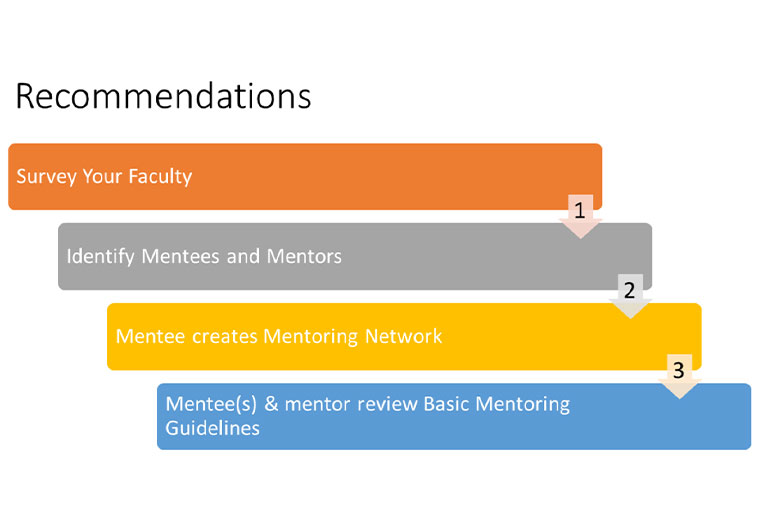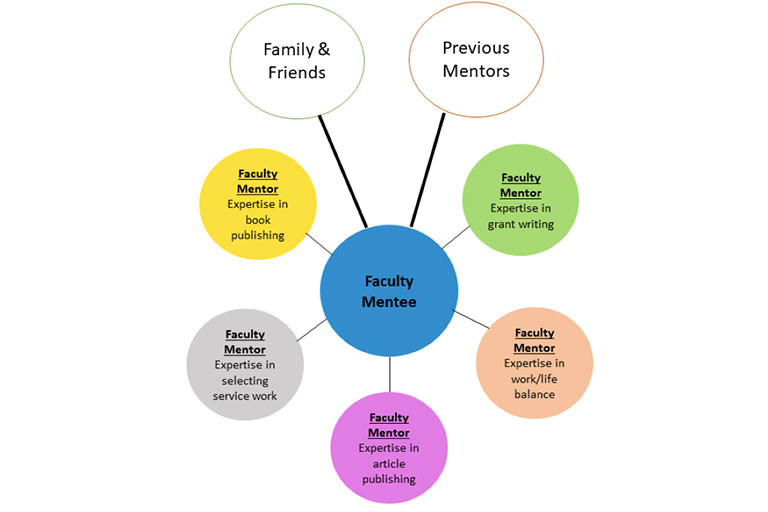Faculty-to-Faculty (F2F) Network Mentoring Program (NMP)
Mentoring remains one of the most viable tools for professional development. While scholars have noted that corporate mentorship models are not necessarily applicable to academe,1 the feelings of isolation and alienation among minorities who are “tokens” in the workplace may be generalizable across these contexts.2, 3
The F2F NMP projects a broad vision for faculty mentoring, collaborating with schools/colleges to bring to URM faculty opportunities to form diverse networks. This framework draws on best practices described throughout the vast literature on mentoring. For example, we determine the needs of mentees as well as the expertise of mentors to provide options for mentees so that mentees have some choice in the assignment of a mentor.
The program allows for matching based on a wide range of characteristics as the mentee determines the nature and scope of operation of those professional relationships. We provide a mentoring map to help guide mentees as they build a constellation of mentors, a checklist for mentors and mentees to follow throughout their term, and valuable metrics to determine if mentoring networks are progressing towards their stated goals. Diverse networks provide broader perspectives that can help promote research ideas, professional connections that can lead to more opportunities, and a sense of belonging due to accomplishing key academic benchmarks. We believe these benefits are available for mentors and mentees.
Historically, URM faculty are at a disadvantage as they find themselves in departments with few minority faculty from whom to draw professional guidance. They also face challenges of implicit bias and cultural alienation from colleagues who are insensitive to the unique experiences of minority faculty working at predominantly white institutions (PWIs). Within the F2F NMP, professional networks do not replace centered spaces (where URM faculty can form relationships with colleagues that look like them) but instead allow for the development of both professional and social network ties that draw on a vast pool of academic colleagues.

Illustration of an “ideal” mentoring network that pairs the mentee’s needs with mentor expertise.

Research also demonstrates that having supportive family and friends within your network is essential for overall well-being and success. While we cannot create family/friends/previous mentor connections, we can assist those looking to create a professional mentoring network.
If you or your department/college/unit is interested in partnering with OVPDEI to establish a F2F-NMP, please get in touch with us at AVPFB@iu.edu. If you’re interested in being a mentor or mentee please complete the application.

